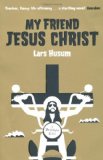Anyone who is thinking about giving a book for a gift is thinking of Christmas. But four months from now is the perfect opportunity to give someone a book as World Book Night premiers in the U.S. on April 23, 2012. And now we know the 30 books that will be given away and the list is impressive both in variety and quality.
World Book Night was launched last year in the U.K. and encourages thousands of people to go out into their communities to spread the love of books and reading. How do they do it? They give away free World Book Night paperbacks to a stranger or to people they might know but believe aren’t frequent readers.
Here’s the list of books that will be used in the U.S.:
- The Absolutely True Diary of a Part-Time Indian by Sherman Alexie
Wintergirls by Laurie Halse Anderson
I Know Why the Caged Bird Sings by Maya Angelou
Friday Night Lights by H.G. Bissinger
Kindred by Octavia E. Butler
Ender’s Game by Orson Scott Card
Little Bee by Chris Cleave
The Hunger Games by Suzanne Collins
Blood Work by Michael Connelly
The Brief Wondrous Life of Oscar Wao by Junot Diaz
Because of Winn-Dixie by Kate DiCamillo
Zeitoun by Dave Eggers
Peace Like a River by Leif Enger
A Reliable Wife by Robert Goolrick
Q is for Quarry by Sue Grafton
The Kite Runner by Khaled Hosseini
A Prayer for Owen Meany by John Irving
The Stand by Stephen King
The Poisonwood Bible by Barbara Kingsolver
The History of Love by Nicole Krauss
The Namesake by Jhumpa Lahiri
The Things They Carried by Tim O’Brien
Bel Canto by Ann Patchett
My Sister’s Keeper by Jodi Picoult
Housekeeping by Marilynne Robinson
The Lovely Bones by Alice Sebold
The Immortal Life of Henrietta Lacks by Rebecca Skloot
Just Kids by Patti Smith
The Glass Castle by Jeannette Walls
The Book Thief by Markus Zusak
The goal is to have 50,000 people participate — meaning 1 million books would be given away. But to participate you have to apply to be a “giver.” Givers will be chosen based on where, to whom and why they want to give the books. And one of the more interesting things they are asking potential givers to agree to is that they’ve read and love the book they apply to give away. (Since The Things They Carried is one of my Desert Island Books, I’m guessing that will be my choice.)
Applications for potential givers are now available. Go ahead and check out the site and consider becoming a giver. Think of it as an early Christmas gift to yourself and to the love of reading.
Reading is everything.
Nora Ephron, I Feel Bad About My Neck








